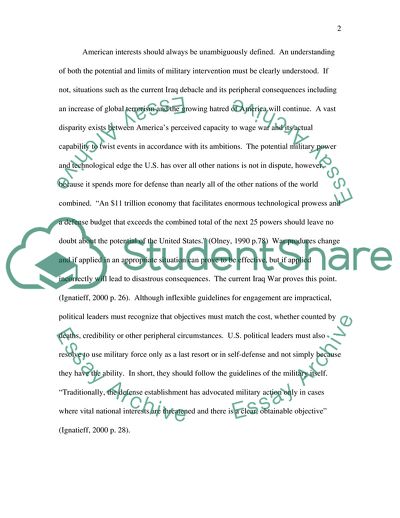Cite this document
(The War in Iraq Was Wrong on Many Fronts Case Study, n.d.)
The War in Iraq Was Wrong on Many Fronts Case Study. https://studentshare.org/politics/1710604-withdrawal-of-us-troops-from-iraq-its-consequences
The War in Iraq Was Wrong on Many Fronts Case Study. https://studentshare.org/politics/1710604-withdrawal-of-us-troops-from-iraq-its-consequences
(The War in Iraq Was Wrong on Many Fronts Case Study)
The War in Iraq Was Wrong on Many Fronts Case Study. https://studentshare.org/politics/1710604-withdrawal-of-us-troops-from-iraq-its-consequences.
The War in Iraq Was Wrong on Many Fronts Case Study. https://studentshare.org/politics/1710604-withdrawal-of-us-troops-from-iraq-its-consequences.
“The War in Iraq Was Wrong on Many Fronts Case Study”. https://studentshare.org/politics/1710604-withdrawal-of-us-troops-from-iraq-its-consequences.


